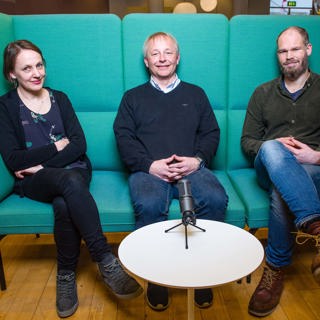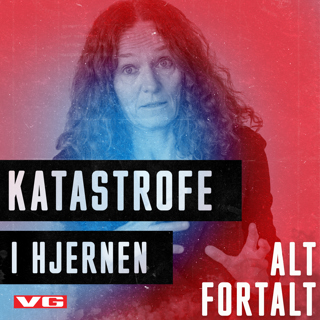
243. Sally Satel on Addiction, the Opioid Crisis, Deaths of Despair, and How Psychiatry Has Gone Woke
Shermer and Satel discuss: how political correctness has corrupted medicine; how wokeness and social justice activism has corrupted psychiatry; what is social justice and who is really practicing it?; medical models of mental illness and addiction and why mental illness is so hard to treat; addictions to porn and social media; why some people are able to break free from their addictions while others are not; organ transplant markets, and more… Dr. Sally Satel is a visiting professor of psychiatry at Columbia University's Vagelos College of Physicians & Surgeons, a senior fellow at the American Enterprise Institute, a lecturer at Yale University School of Medicine, and a practicing psychiatrist. She holds an MD from Brown University and completed her residency in psychiatry at Yale University. Satel is the author of PC, MD: How Political Correctness is Corrupting Medicine, Brainwashed: The Seductive Appeal of Mindless Neuroscience (with Scott Lillienfeld), and One Nation Under Therapy: How the Helping Culture Is Eroding Self-Reliance (with Christina Hoff Sommers). Dr. Satel lives in Washington, DC.
22 Jan 20222h 5min

242. Jonathan Gottschall — The Story Paradox: How Our Love of Storytelling Builds Societies and Tears Them Down
Humans are storytelling animals. Stories are what make our societies possible. Countless books celebrate their virtues. But Jonathan Gottschall, an expert on the science of stories, argues that there is a dark side to storytelling we can no longer ignore. Storytelling, the very tradition that built human civilization, may be the thing that destroys it. In The Story Paradox, Gottschall explores how a broad consortium of psychologists, communications specialists, neuroscientists, and literary quants are using the scientific method to study how stories affect our brains. In this conversation based on his new book, Gottschall reveals why our biggest asset has become our greatest threat, and what, if anything, can be done. It is a call to stop asking, "How we can change the world through stories?" and start asking, "How can we save the world from stories?"
18 Jan 20221h 37min

241. Jeff Maurer — I Might Be Wrong
Michael Shermer speaks with writer, comedian, and five-time Emmy winning Senior Writer for John Oliver's Last Week Tonight, Jeff Maurer, about the nature of creativity, comedy, politics, culture, and how the television business really works! Jeff Maurer won two Peabody Awards, five Writers Guild Awards, and four Television Critics Association awards. He was one of the original writers of Last Week Tonight with John Oliver, where he was promoted to Senior Writer. He left the show to write a political comedy called I Might Be Wrong: a podcast and several-times-weekly Substack column that covers politics and economics with a comedic voice. Instead of trying to interpret the world from a single viewpoint, Jeff picks apart the thinking behind the viewpoints and digs deep into policy.
15 Jan 20221h 36min

240. Leonard Mlodinow — Emotional: How Feelings Shape Our Thinking
xtraordinary advances in psychology and neuroscience have proven that emotions are as critical to our well-being as thinking. In this conversation, Shermer and Mlodinow explore the new science of feelings. Journeying from the labs of pioneering scientists to real-world scenarios that have flirted with disaster, Mlodinow shows us how our emotions can help, why they sometimes hurt, and what we can learn in both instances. Shermer and Mlodinow discuss: the difference between emotions and feelings/moods/drives/passions; how the scientific understanding of emotions has changed; thought vs. feeling; system 1 vs. system 2 cognition; mind-body connection: how does our physical state influence what we think & feel?; the neuroscience of emotions: how the brain constructs emotions; Lisa Feldman Barrett challenge to Paul Ekman's theory of universal emotions; Schachter-Singer theory of emotion; the effects of social context on emotions; and more…
11 Jan 20221h 52min

239. Richard Firth-Godbehere — A Human History of Emotion: How the Way We Feel Built the World We Know
We humans like to think of ourselves as rational creatures, who, as a species, have relied on calculation and intellect to survive. But many of the most important moments in our history had little to do with cold, hard facts and a lot to do with feelings. Events ranging from the origins of philosophy to the birth of the world's major religions, the fall of Rome, the Scientific Revolution, and some of the bloodiest wars that humanity has ever experienced can't be properly understood without understanding emotions. Drawing on psychology, neuroscience, philosophy, art, and religious history, Richard Firth-Godbehere takes us on a fascinating and wide ranging tour of the central and often under-appreciated role emotions have played in human societies around the world and throughout history—from Ancient Greece to Gambia, Japan, the Ottoman Empire, the United States, and beyond.
4 Jan 20221h 57min

238. Brian Klass — Corruptible: Who Gets Power and How it Changes Us
Does power corrupt, or are corrupt people drawn to power? Are entrepreneurs who embezzle and cops who kill the result of poorly designed systems or are they simply bad people? What sort of people aspire to power anyway? Are there individuals among us who should never be given the title of president, or CEO, or PTA leader lest they build their own dictatorship? Michael Shermer speaks with Brian Klaas, a renowned political scientist, Washington Post columnist and creator of the award-winning Power Corrupts podcast, about his long sought answers to the above questions. In his new book Klaas draws on over 500 interviews with some of the world's top leaders — from the noblest to the most crooked — including presidents and philanthropists as well as rebels, cultists, and dictators, to get to the root of power and corruption. Klaas dives into how facial appearance determines who we pick as leaders, why narcissists make more money, why some people don't want power at all and others are drawn to it out of a psychopathic impulse, and why being the "beta" (second in command) may be the optimal place for health and well-being.
28 Des 20211h 40min

237. David Wengrow on The Dawn of Everything: A New History of Humanity
For generations, our remote ancestors have been cast as primitive and childlike — either free and equal innocents, or thuggish and warlike. Civilization, we are told, could be achieved only by sacrificing those original freedoms or, alternatively, by taming our baser instincts. David Graeber and David Wengrow show how such theories first emerged in the eighteenth century as a conservative reaction to powerful critiques of European society posed by Indigenous observers and intellectuals. Revisiting this encounter has startling implications for how we make sense of human history today, including the origins of farming, property, cities, democracy, slavery, and civilization itself. In this conversation, based on the book The Dawn of Everything: A New History of Humanity, Shermer speaks with professor of comparative archaeology, David Wengrow, about his pathbreaking research in archaeology and anthropology that fundamentally transforms our understanding of the human past and offers a path toward imagining new forms of freedom, new ways of organizing society.
21 Des 20211h 33min

236. Fernanda Pirie on The Rule of Laws: A 4,000-Year Quest to Order the World
Rulers throughout history have used laws to impose order. But laws were not simply instruments of power and social control. They also offered ordinary people a way to express their diverse visions for a better world. The variety of the world's laws has long been almost as great as the variety of its societies. In this conversation, Shermer speaks with Oxford professor of the anthropology of law, Fernanda Pirie, who traces the rise and fall of the sophisticated legal systems underpinning ancient empires and religious traditions, showing how common people — tribal assemblies, merchants, farmers — called on laws to define their communities, regulate trade, and build civilizations. What truly unites human beings, Pirie argues, is our very faith that laws can produce justice, combat oppression, and create order from chaos.
18 Des 20211h 28min




















